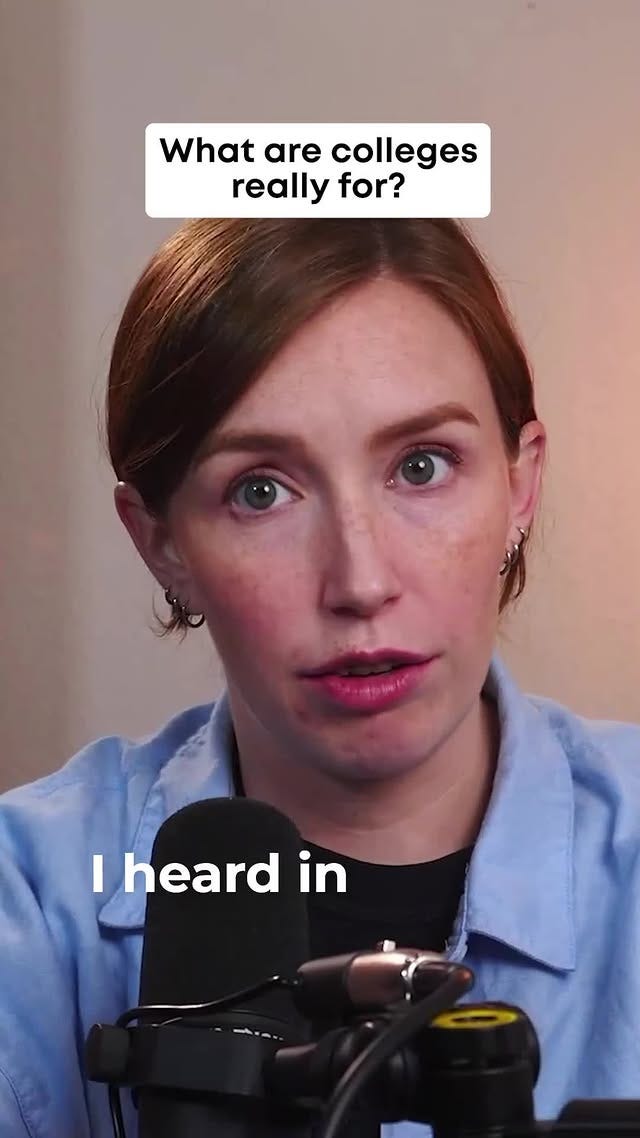Building Confidence: The Skill That Powers Every Other Skill
A letter to students and their teachers
A student stopped by my office recently and said something that stuck with me:
I want to build my confidence. Are there any books you would recommend I read?
So today, I will share my thoughts on this topic for students and their faculty. We can do a better job of building student skills and confidence. This requires us to balance skill development with content mastery. It also explains why higher education is losing the marketing game right now—more on that in future posts.
I will end by sharing some books that have influenced my professional development. This is not a comprehensive list; this is my favorite genre. I would love to hear from you in the comments. This topic can benefit from hearing more diverse perspectives.
If you’ve been reading Decode Econ for a while, you know how much I care about helping students develop their soft skills, what Dr. Jeni Al Bahrani calls transferable skills. These are the abilities that move with you from one role to another: communication, teamwork, adaptability, critical thinking, and, yes, in aggregate, lead to improved confidence.
What’s Missing in Economic Education
Economics, as a discipline, gives students incredible analytical tools, but we don’t always spend enough time on how to use those tools with confidence. We focus on theory and models, but the workplace demands more: self-efficacy, curiosity, and the ability to communicate ideas clearly. Students struggle with ambiguity and uncertainty, which are critical for success in the “real world”. Students participating in applied projects often develop these skills, but they’re rarely the intended learning objective. Our focus in the economics classroom is primarily on content knowledge.
Our education system often assumes that students will recognize the importance of these transferable skills, track them, and measure their growth on their own. But that’s a heavy lift. We need to do a better job of helping students identify, develop, and document these transferable skills so they graduate not just knowing economics and business content but also their strengths and skills and being able to communicate their value proposition.
The Economics of Confidence
In economic terms, confidence is human capital, an asset that grows through investment and experience. The more you practice skills in real settings, the stronger and more valuable they become.
Students build confidence through content knowledge and application; research projects, internships, and experiential learning opportunities like The Econ Games. These are real-world “markets” for ideas where students test what they know, get feedback, and iterate; they learn by doing.
That’s why I see the next decade of my career focused on designing curriculum that teaches content through skill acquisition. Studying economics should also mean studying communication, leadership, managing ambiguity, working in teams, and creative problem-solving.
This explains the attack on the value of higher education. Videos like the one below are the ones your students and parents watch. The assumption is that we aren’t teaching students the skills needed to be employable.
Seven Books to Build A Resilient Mindset
Confidence isn’t something you wait to have; it’s something you build through repetition and reflection. My mentees will tell you how much I invest in reflection; it is an underutilized process in our education system. I have built more confidence by writing this newsletter and my social media content. It is an evaluative and reflective process—thank you for listening to me!
Build confidence by starting small. Say yes to uncomfortable opportunities. Ask questions in class, volunteer to present…get out of your comfort zone.
For young professionals, find a friend to attend networking events with. Go get out, and stop staying at home. Like Scott Galloway said, home is for the seven hours of sleep.
And if you’re looking to understand better the world of skills, work, and growth, here are seven books I recommend to every economics or business student starting this journey
12 ½: Leveraging the Emotional Ingredients Necessary for Business Success – Gary Vaynerchuk
A practical guide to emotional intelligence, humility, and self-awareness in leadership. (Buy)Radical Candor – Kim Scott
How to care personally while challenging directly, essential for anyone leading teams or giving feedback. (Buy)Grit – Angela Duckworth
Why passion and perseverance often matter more than talent for long-term success. (Buy)Mindset – Carol Dweck
The foundation of growth-oriented learning, how belief in your ability to improve changes everything. (Buy)So Good They Can’t Ignore You – Cal Newport
Why building rare and valuable skills, not just following passion, creates confidence and career satisfaction. (Buy)Range: Why Generalists Triumph in a Specialized World – David Epstein
A compelling argument for developing broad skills and curiosity, it is perfect for students learning to connect ideas across disciplines. (Buy)Hidden Potential: The Science of Achieving Greater Things – Adam Grant
A reminder that excellence isn’t innate, it’s cultivated through feedback, support, and continuous growth. (Buy)
Each explores a different angle on how people learn, adapt, and thrive, skills that go hand in hand with building confidence.
If this resonated with you, share it with a student or colleague who’s finding their confidence.




Love this perspective! Being able to sell your ideas and work is just as important as your ideas and work themselves.
I don't always love his delivery but Scott Galloway's books have a lot of wisdom.